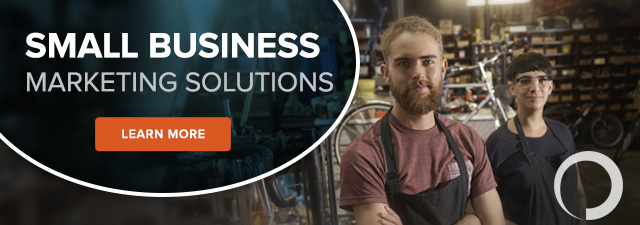Thinking about experimenting with the Google Display Network (GDN)? This could mean a variety of different things, but most commonly, this means showing banner ads on site that are a part of the GDN. The GDN isn’t exclusively for banner ads. Ad formats vary from text ads to video ads, animated banners, and ads on mobile sites.
This post is specifically meant to help get you started with banners, though. Whether your banners are for traditional display targeted ads or for remarketing, there are strict specifications to follow. We also have some best practices for you to help you get the most out of your banners.
Are you creating your own banners?
If you are designing and developing your own static banner ads, be sure they meet the following specifications:
Google supports .jpeg, .jpg, .png, and .gif formats.
All image files must be 150KB or smaller.
There are many different accepted image sizes. We recommend sticking with the eight most common sizes to save time and resources:
- 468×60
- 728×90
- 300×250
- 336×280
- 120×600
- 160×600
- 300×600
- 320×100
In addition to those specifications, we have some other best practices that should improve performance:
Messaging
Your banners should convey a clear message. Include things like competitive advantages, sales, or whatever makes sense given your goals.
Whatever you decide to include, be concise. A general rule of thumb (borrowed from Facebook but works well on Google too) is to keep text to about 20% of the overall banner space or less. Allow your imagery to speak for you too!
Call to action
This may seem like an obvious point, but it’s so important that I’m saying it anyway.
Your banners should include a call to action.
What is the desired action of your users? Buy Now? Learn More? Whatever it is, be descriptive and direct. Click here won’t cut it. Tell your users what will happen if they click. Buttons are a great option here.

Design
The look and feel of your banners should in some way mimic the landing page you are using. You want to create a familiar experience for users. If they click, they should feel like they’re landing in the correct place. I’m no designer so I won’t put many restrictions on you here, but I will say we’ve found that using light text and dark backgrounds is something to avoid. Make sure the text is easy to read quickly and don’t let the design overpower the message.
Ad Gallery
If you don’t have the resources to design and develop your own banner ads, Google has a solution for you. Built directly into AdWords is a tool called the AdWords Ad Gallery (formerly Display Ad Builder).
This tool can help you create static ads like the ones I’ve been explaining and much more. You can also use it to create things like dynamic product ads, lightbox ads, Gmail ads and more.

It can be handy tool in a pinch, but if you have the resources, I’d opt to create your own and upload to AdWords.
If you have questions about how to get ads for your business on the Google Display Network, let us know.






